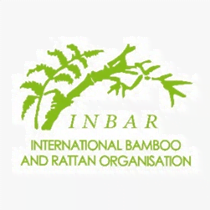Delegates from African member states of the International Bamboo and Rattan Organization (INBAR) are embarking on a study tour in Ghana as part of efforts to promote networking and establish partnerships for investment in the bamboo sector.
The three-day tour, which will take the delegates to project sites of INBAR in the Greater Accra, Eastern, and Ashanti Regions also seeks to share successful best practices and achievements in the bamboo sector in Ghana with the delegates from other African Countries.
INBAR is an intergovernmental organisation headquartered in China with 47 member states including 20 from Sub-Saharan Africa.
Participating delegates are coming from all the 20 African member states including Cameroon, Ethiopia, Madagascar, Benin, Burundi, Central African Republic and Eritrea.
The rest are Liberia, Malawi, Mozambique, Nigeria, Rwanda, Senegal, Sierra Leone, Tanzania, Togo, Kenya and Uganda.
The delegates are made up of key industry players such as policymakers, bamboo advocates, private sector entrepreneurs, smallholder farmers and women from member states.
The tour comes on the back of the significant progress that Ghana has made in the development of the bamboo sector, which has created a favourable policy environment, thereby attracting investments to the sector.
Michael Kwaku, the National Coordinator of INBAR-Ghana, told the Ghana News Agency ahead of the tour that it was designed to provide participants the opportunity to learn Ghana’s experience in sustainable bamboo development.
He said the tour would also inspire deliberations and extensive exchanges on how to add value to the native bamboo resources in the countries of participants as well as how to make strategic plans for the industrialization of the bamboo sector based on local conditions.
Among the places to be visited by the participants are the Bamboo and Rattan Unit of the Forestry Commission (FC), Council for Scientific and Industrial Research (CSIR), Boomers Bamboo Bicycle Factory, Pamplo Ghana Limited, Global Bamboo Product Limited and the Animal Science Department of the Kwame Nkrumah University of Science and Technology (KNUST).
GNA


